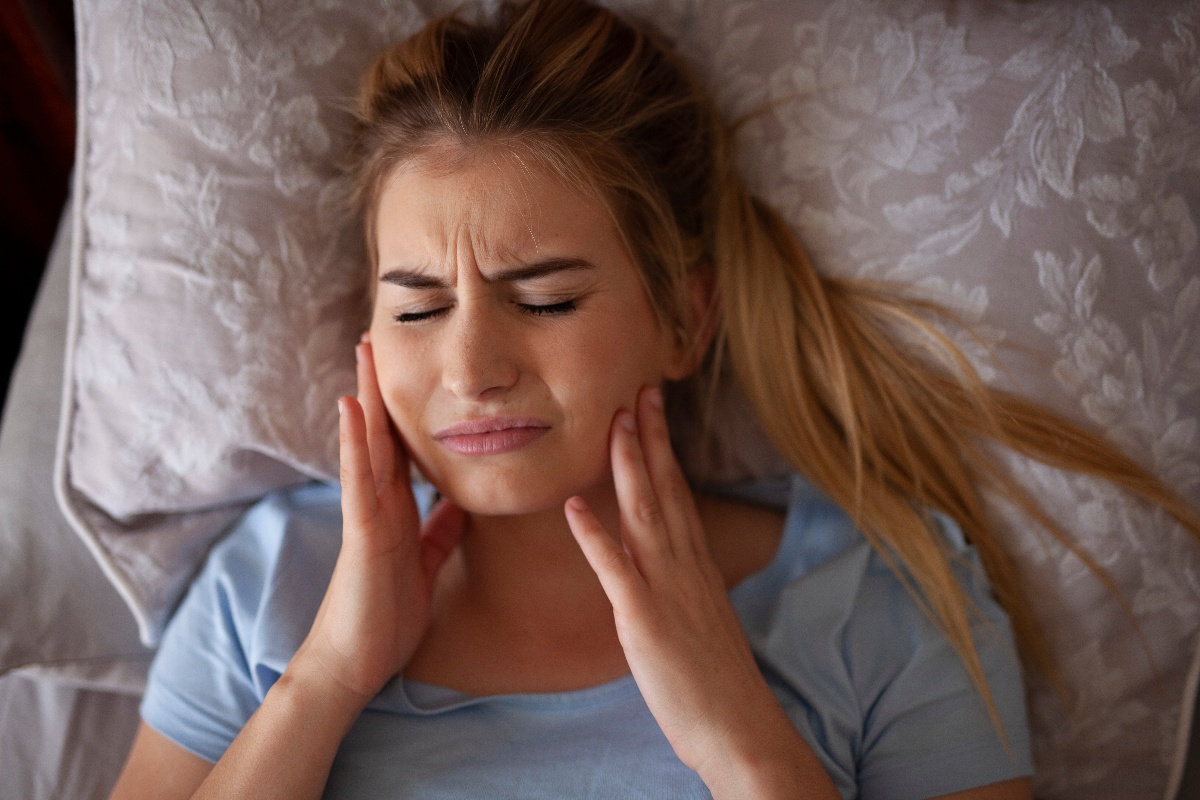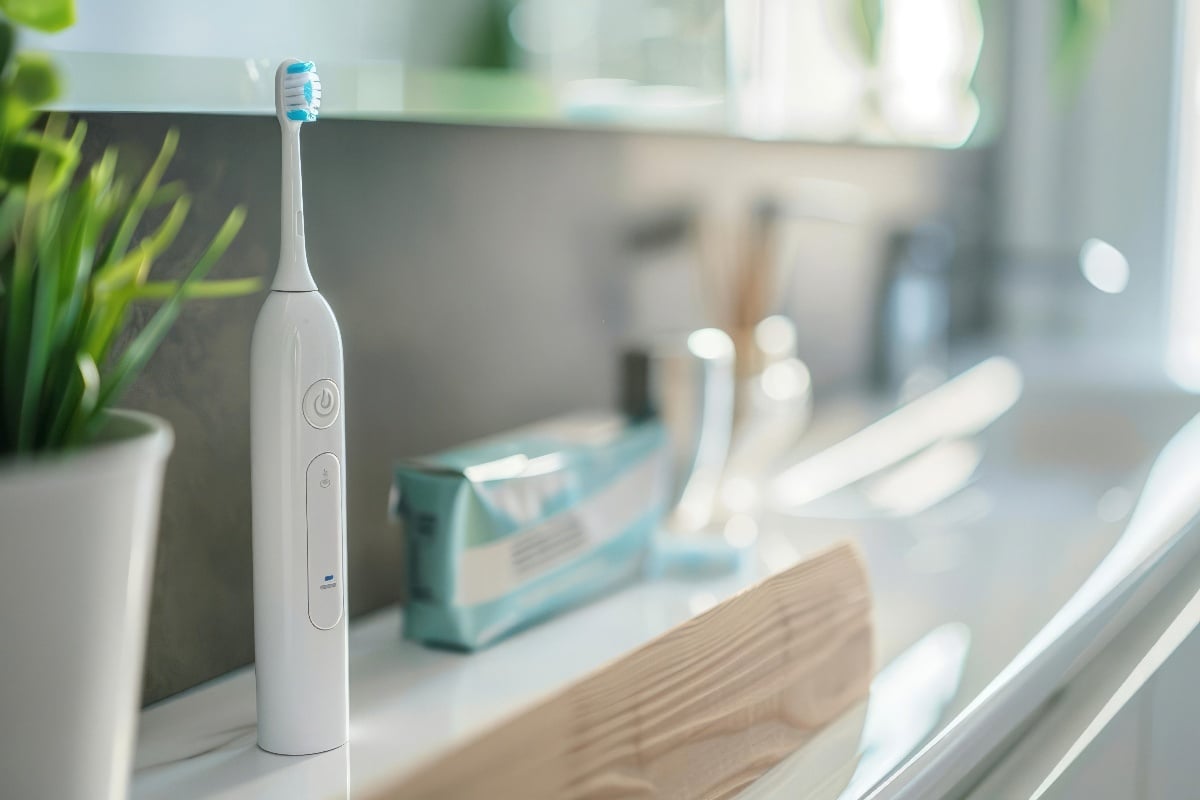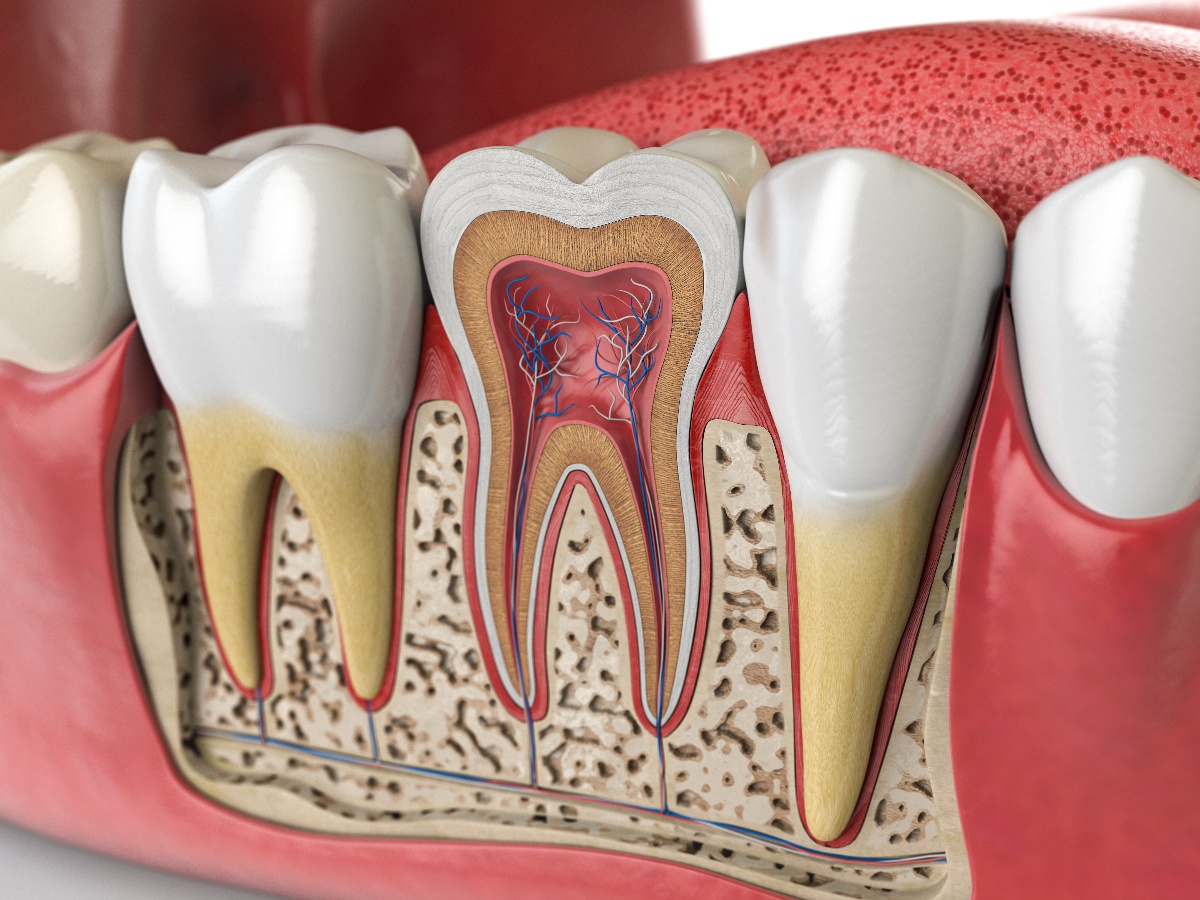Bruxism is a prevalent dental condition that affects millions of people each year. Its consequences extend beyond its effects on oral health and can impact various aspects of physical and psychological well-being. Affecting an estimated 30% of the population, bruxism can require treatment by dentists, physicians, sleep therapists, and other healthcare providers. Its physical, emotional, and economic toll suggests that it is beneficial for most people to understand this condition's causes, effects, and treatments.
Defining Bruxism
Bruxism is grinding or clenching your teeth, usually while sleeping, but it can also occur during the day. It frequently goes unnoticed until it begins to cause significant problems.
At its core, bruxism is an involuntary and repetitive movement that puts excessive force on the teeth and jaw. While occasional teeth grinding is common, frequent and severe bruxism can harm oral health, sleep quality, and overall well-being.
Two Types of Bruxism
Bruxism would seem to be simple and straightforward–you close your teeth together and grind them together. However, this condition has two distinct types, each with unique characteristics and causes.
1. Awake Bruxism
Awake bruxism, or diurnal bruxism, occurs when you grind or clench your teeth during waking hours. This type of bruxism often ties closely to psychological factors, including stress, anxiety, and emotional tension. If you grind your teeth while awake, you may not even be aware of your habit since it is such a subtle clenching of your jaws. Common signs and symptoms of awake bruxism include:
- Frequent headaches, especially in the temples
- Soreness or pain in the jaw muscles
- Teeth that appear flattened or worn down
- Chipped or cracked teeth
- Difficulty concentrating due to dental discomfort
Although awake bruxism shares some similarities with its nocturnal counterpart, it typically involves different triggers and management strategies.
2. Sleep Bruxism
Sleep bruxism is more common and can be further divided into primary and secondary categories. Primary sleep bruxism is not associated with any underlying medical condition, while secondary sleep bruxism is a side effect of a specific medical disorder. It is believed to result from a combination of physiological and neurological factors, such as sleep disorders, dental misalignment, and medication side effects. Identifying sleep bruxism can be challenging since it primarily occurs when individuals are unaware.
Some common signs and symptoms of sleep bruxism include:
- Audible teeth-grinding noises during sleep, often reported by a sleep partner
- Morning jaw pain or stiffness
- Frequent tension headaches upon waking
- Tooth sensitivity due to enamel wear
- Disrupted sleep patterns and daytime fatigue
Causes of Teeth Grinding
Understanding the underlying causes is necessary to prevent and treat bruxism. It is a complex condition with a variety of triggers, both physiological and psychological. The brief overview below of bruxism’s causes reveals the complexity and challenge of this common condition for dentists and patients.
1. Psychological Factors Contributing to Bruxism
- Stress and Anxiety
- Emotional Tension
One of the most common factors associated with teeth grinding is stress. The pressures of modern life have several physical manifestations, and for some people, they lead to grinding their teeth. People experiencing high levels of stress or anxiety may clench their jaws or grind their teeth unconsciously, both during the day (awake bruxism) and at night (sleep bruxism).
Emotions like anger, frustration, or suppressed feelings can also trigger bruxism. Individuals who have difficulty coping with their emotions in a healthy manner may find relief through teeth grinding as a subconscious way to release this frustration and tension.
2. Physiological Factors
- Misaligned Teeth or TMJ
- Sleep Disorders
Malocclusion (misaligned teeth) or jaw problems, such as temporomandibular joint disorder (TMJ), can contribute to bruxism. These issues can cause an imbalance in the bite, leading to excessive teeth grinding or clenching.
Sleep apnea and other sleep-related disorders have been linked to an increased risk of bruxism. Sleep apnea involves breathing interruptions during sleep, leading to oxygen deprivation and potential arousal, which can trigger bruxism episodes.
3. Lifestyle Factors
- Alcohol and Drug Use
- Caffeine Intake
The consumption of alcohol or recreational drugs can disrupt the natural sleep cycle and relax your jaw muscles. As a result, you may be more prone to grinding your teeth while under the influence of these substances.
Excessive caffeine consumption, especially close to bedtime, can contribute to heightened arousal and difficulty relaxing during sleep, potentially aggravating bruxism.
4. Medication-Related Causes of Bruxism
Certain medications, such as antidepressants and antipsychotics, have been linked to bruxism. Additionally, the use of alcohol, caffeine, or tobacco can exacerbate the condition by increasing muscle activity and jaw tension.
5. Genetics and Family History
Some research suggests that bruxism may have a genetic component, with individuals having a family history of the condition being more likely to develop it themselves.
Effects of Bruxism
Unfortunately, teeth grinding is often overlooked until there are noticeable consequences. However, bruxism is not just a minor dental nuisance; it can have far-reaching consequences that impact various aspects of your life. From dental problems to physical discomfort and even psychological distress, the effects of bruxism are both extensive and multifaceted.
The effects of bruxism include:
Oral Health Consequences
Teeth grinding can lead to several oral health issues, including:
- Worn-down teeth: The constant grinding and clenching can wear down tooth enamel, leading to tooth sensitivity and an increased risk of tooth decay.
- Tooth fractures: Excessive pressure from bruxism can cause teeth to chip, crack, or break.
- Loose teeth: Teeth grinding can loosen teeth in their sockets, potentially leading to tooth loss.
- Gum recession: The constant pressure on gums can cause them to recede, increasing the risk of gum disease and tooth sensitivity.
- Temporomandibular joint (TMJ) disorders: Bruxism can lead to chronic inflammation and pain in the TMJ, which connects the jaw to the skull, resulting in limited jaw movement and headaches.
Sleep Disturbances
Teeth grinding during sleep can disrupt the sleep cycle, leading to several issues, including daytime fatigue, decreased concentration, and diminished overall cognitive performance.
Physical Health Issues
Long-term bruxism can lead to chronic pain conditions, such as:
- Headaches and migraines: The constant strain on the jaw muscles and TMJ can cause tension headaches and migraines.
- Earaches: The pressure on the jaw joint can cause ear discomfort, leading to pain and ringing in the ears.
- Facial muscle pain: The continuous clenching of jaw muscles can cause chronic facial pain, making it difficult to chew and speak.
Psychological Impact
Bruxism can also have a psychological impact on individuals, causing:
- Anxiety: The habit of teeth grinding can be a coping mechanism for stress and anxiety, leading to increased feelings of worry and apprehension.
- Depression: The chronic pain and discomfort associated with bruxism can contribute to feelings of sadness and hopelessness.
Treatments for Bruxism
Addressing bruxism, or teeth grinding, requires a multifaceted approach aimed at both alleviating symptoms and preventing further damage. Fortunately, several effective treatments are available for each case of bruxism’s specific needs and severity. The range of treatments and strategies that can help you regain control of your dental health and overall well-being include:
- Lifestyle changes such as stress reduction, limiting caffeine and alcohol, and maintaining a regular sleep schedule.
- Behavioral therapy such as meditation, deep breathing, and relaxation techniques.
- Stress management with yoga, exercise, or cognitive behavioral therapy.
- Alternative therapies such as biofeedback, acupuncture, or Botox injections.
- Pharmaceuticals such as muscle relaxers and pain medications.
- Dental treatments such as night guards, splints, and orthodontics.
Selecting the most suitable treatment approach for bruxism depends on the specific circumstances and the severity of the condition. An important reason for regular dental exams and professional teeth cleaning is the early detection of bruxism. This can help prevent costly and time-consuming dental treatment in the future.
Schedule an Appointment
The oral health care professionals at Palmetto Dental Arts can help answer your questions and prevent the damage that bruxism causes. To learn more, call us or contact us online.





